CUEB Hosts the First Seminar on Advancing Coordinated Development of the Beijing-Tianjin-Hebei Region
From December 11 to 15, CUEB hosted “The First Seminar on Advancing Coordinated Development of the Beijing-Tianjin-Hebei Region”, which was organized by the Organization Department of Beijing Municipal Committee, in collaboration with Tianjin, Hebei Organization Department, and Beijing-Tianjin-Hebei Joint Work Office.
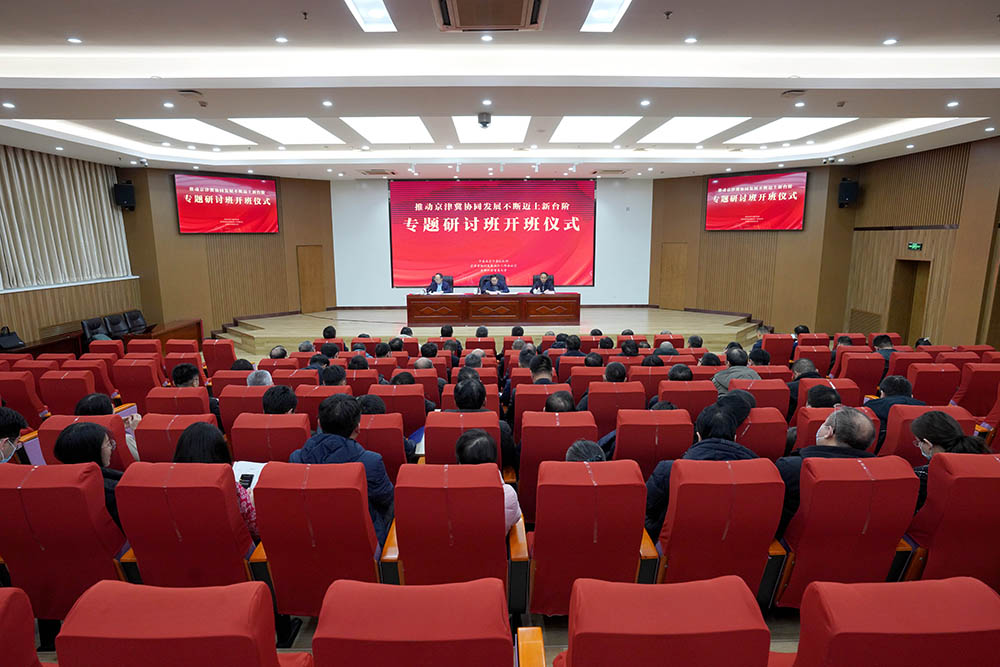
The coordinated development of the Beijing-Tianjin-Hebei region (short for BTH coordinated development) was designated as a major national strategy about 10 years ago. It was to further implement the spirit of General Secretary Xi Jinping’s important meeting on promoting the BTH coordinated development, to help cadres in the Beijing-Tianjin-Hebei region (hereafter BTH region) understand the new situation and new tasks, thus improving their working capabilities. He emphasized that work should be done to advance work in all fields with enthusiasm and diligence, to drive the BTH coordinated development to new heights, and to make the region a pioneer and example in pursuing Chinese modernization. A total of 69 people attended the seminar, including leaders from relevant departments of the BTH region, relevant prefectures and districts, bureau level and county level, and relevant teachers of CUEB.
Liang Decheng, Deputy Director of the Cadre Education Division of the Organization Department of Beijing Municipal Committee, presided over the opening ceremony. He introduced the background, purpose, and significance of the training, and clarified the training discipline and learning requirements. On behalf of the Party Committee of CUEB, Wang Wenju expressed a warm welcome to all students. He introduced the history of CUEB and the achievements in driving the BTH coordinated development. He mentioned that CUEB is one of the first universities to research the BTH coordinated development. Since 2007, the research team has carried out continuous, systematic, and in-depth research on the coordinated development of the capital and BTH region, creating annual forums, such as “The mega-city Development Forum”, “Capital Development Forum”, and “Information Conference of the Beijing-Tianjin-Hebei Blue Book”. It has become an important academic platform for experts in the BTH region to exchange the latest research findings. The academy has successively published 12 BTH Blue Books, and won the first prize of the National Excellent Book Award for 8 times. It conducts theoretical analysis and forward-looking research on the relevant fields and provides intellectual support and decision-making reference for the central government and local governments. He said that considering the building of a stronger country in education and capital development in the new era, CUEB will further strengthen the research on major issues such as the BTH coordinated development, the carbon peaking and carbon neutrality, and the building of a digital economy benchmark city. CUEB will give full play to the role of a think tank and strive to produce more landmark research achievements with academic value to contribute our wisdom and strength to advancing the coordinated development of the BTH region.
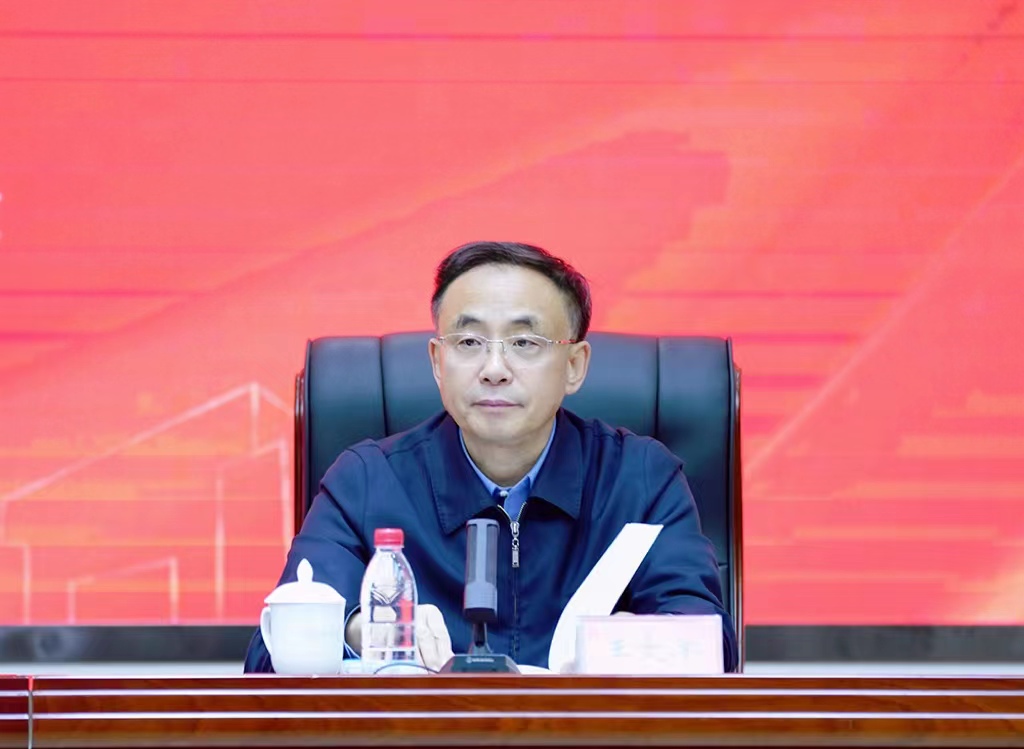
Liu Bozheng, member of the Party Group of Beijing Municipal Commission of Development and Reform, Deputy Director of Beijing-Tianjin-Hebei Cooperation Office, and Executive Deputy Director of Beijing-Tianjin-Hebei Joint Work Office, delivered speeches at the opening ceremony and graduation ceremony. He stressed that the BTH coordinated development is a major national strategy deployed and promoted by General Secretary Xi Jinping. Over the past decade, the strong leadership of the CPC Central Committee and the joint efforts of BTH played a very important role. As a result, new and marked achievements have been made in the BTH coordinated development, efforts to relieve Beijing of functions non-essential to its role as the national capital are bearing fruits, significant phased achievements have been made in building Xiong’an New Area, the high-quality development of the Beijing Municipal Administrative Center has been stepped up, the rail network connecting Beijing, Tianjin and Hebei is quickly taking shape, significant progress has been made in building the region into a beautiful and livable place, and technological innovation and industrial integration have been constantly improved. He put forward three requirements for all participants. The first is to fully understand the significance of advancing the BTH coordinated development to a higher level in the new era. The second is to pay attention to cooperation and advance further key fields and tasks. The third is to strengthen the organization and leadership and consolidate the foundation of the BTH coordinated development.
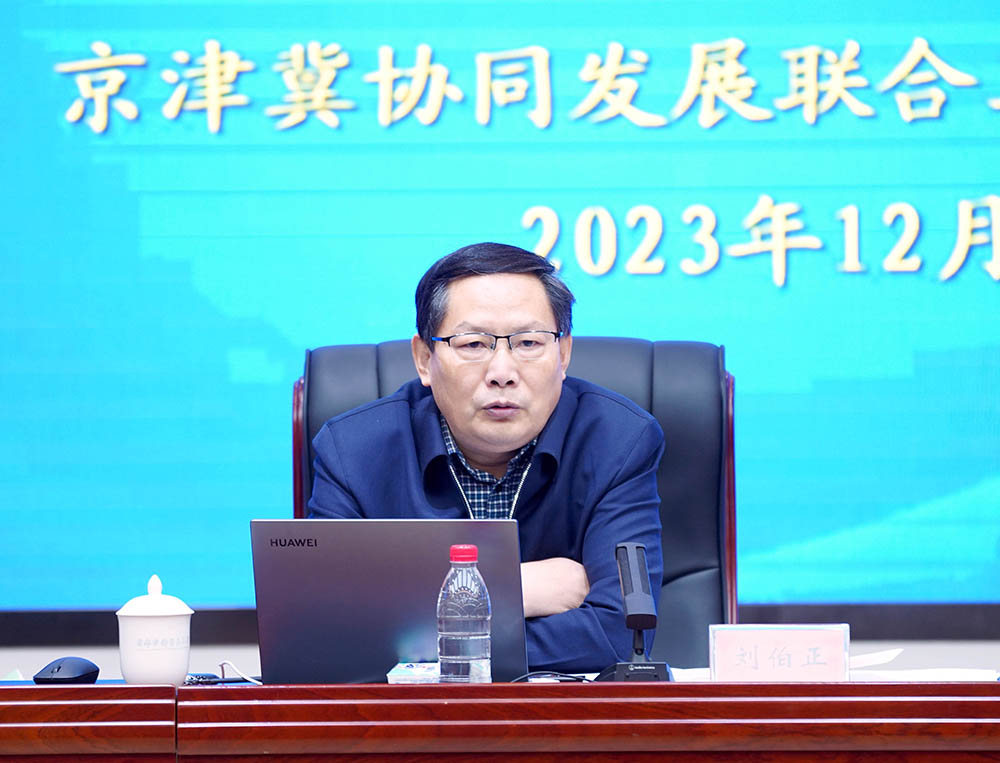
He remarked that the training was a success with definite themes, tasks, and detailed content. Participants exchanged ideas, had a better understanding, and achieved full common consciousness.
Next year will mark the 10th anniversary of BTH coordinated development. The region should make joint efforts to promote high-quality development and work together to make the region a pioneer and example in pursuing Chinese modernization. For future work, Liu Bozheng stressed that we are expected to summarize the achievements of the last 10 years, pay attention to the research on the construction of adjacent areas, strengthen collaborative innovation and industrial cooperation, optimize the regional business environment, and strengthen publicity and guidance. We should make breakthroughs with a strong sense of responsibility, urgency, and mission, to push the BTH coordinated development to new heights.
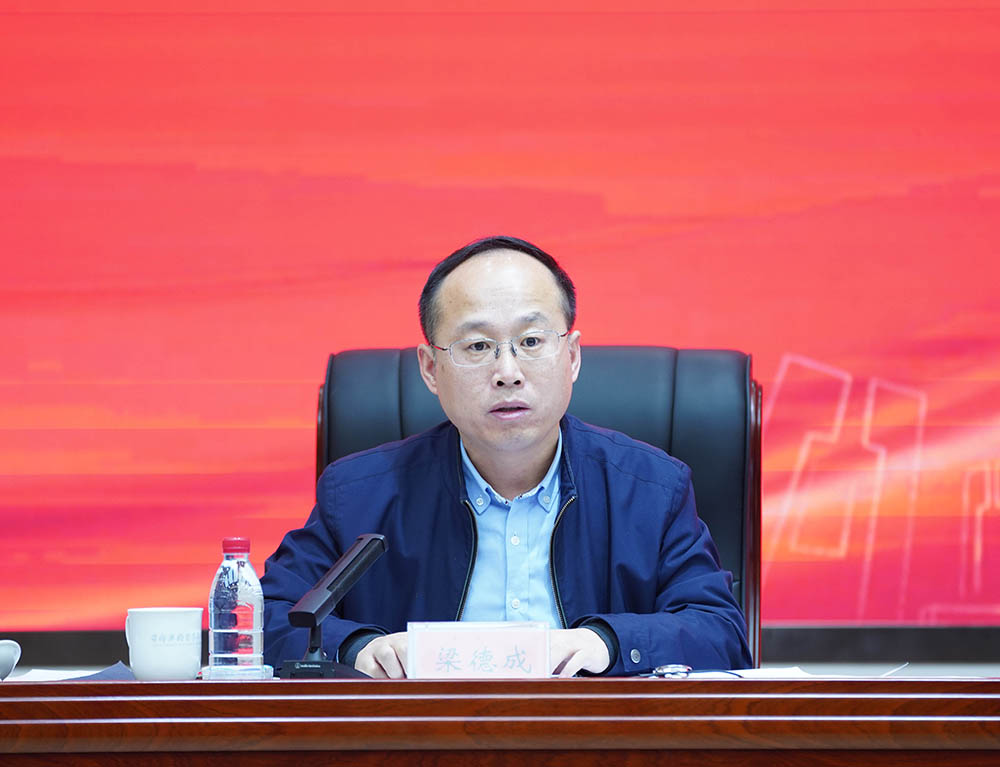
Liang Decheng presides over the opening ceremony
During the training, many experts were invited to give special lectures, including Xia Ji, President of the Yangtze Delta Region Institute of Hualue Think-tank, Zhao Hong, former Deputy Dean and Doctoral Supervisor of Beijing Academy of Social Sciences, Shi Xiaodong, a member of the Party Leadership Group of Beijing Municipal Commission of Planning and Natural Resources, Chief Planner (concurrently) of Beijing Municipal Commission of Planning and Natural Resources, and Party Secretary and President of Beijing Urban Planning and Design Institute, Li Qiong, Associate Professor of the School of Economics of Renmin University, Liu Xuejie, Director of Department of Transport Planning of Beijing Transport Institute, Dai Ying, member of the Party Leadership Group of the Beijing Municipal Commission of Development and Reform and Executive Vice President, Ye Tanglin, Professor and Vice President of Mega-city Research Institute of CUEB and Directors of Xiaomi Corporation. They conducted further studies on ways to integrate of the Yangtze River Delta, capital development in the new era, and an international first-class business environment.
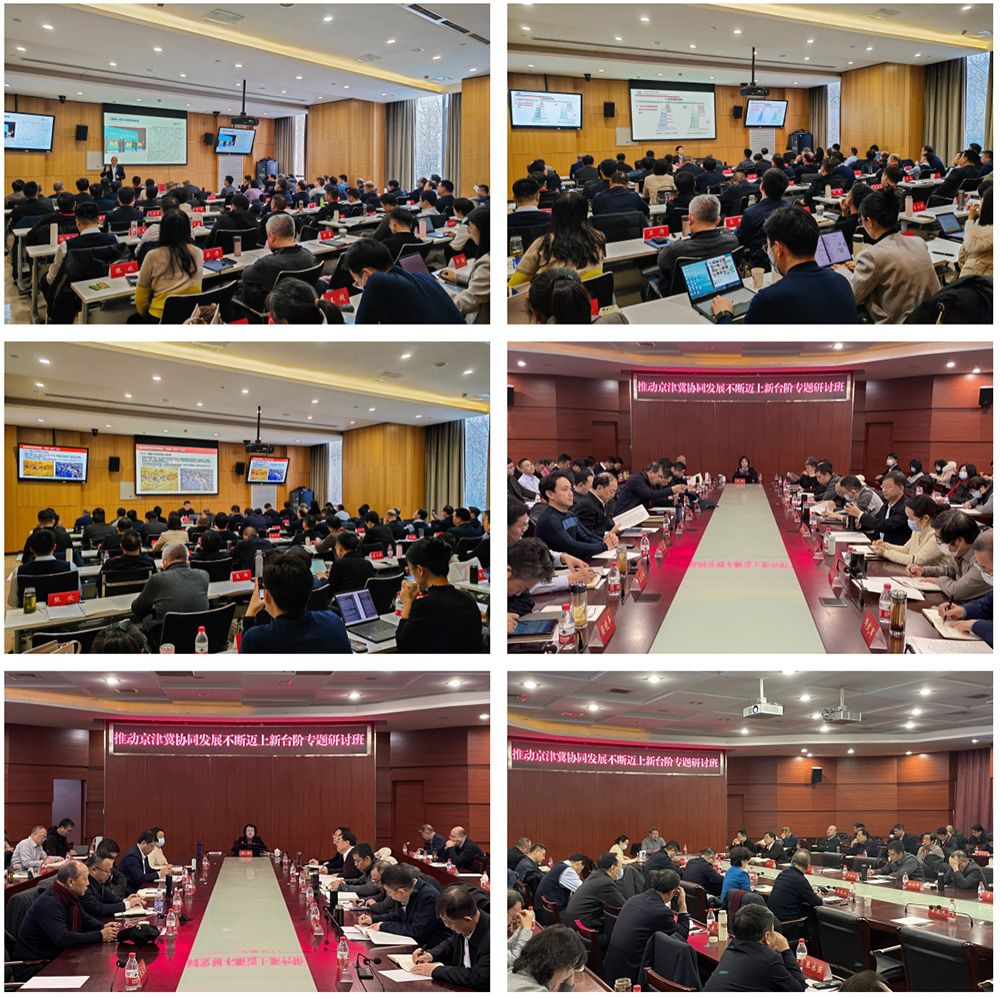

Science and technology innovation is an important engine for social development. On the afternoon of December 14, the training group came to Jingjinji National Center of Technology Innovation for on-site teaching. It is the first comprehensive national technological innovation center and a key national strategic scientific and technological force in China. With a focus on technological innovation and achievement transformation, it provides source technology supply for BTH regional development, cultivates innovators for regional development, and provides innovation services for small and medium-sized enterprises. Today, it has established cooperative relations with more than 20 world-class universities, produced several symbolic achievements, and cultivated a lot of integrated enterprises. It has initially become a leading innovation source center, strategic industry cultivation center, and innovative talent cultivation center. In the central exhibition hall, the trainees studied the functional orientation, mission, and key work of the center. They learned about the progress of the system and mechanism exploration, technological research, and cultivation of emerging industries and innovative talents. They also observe and learn about the representative equipment and technical achievements.
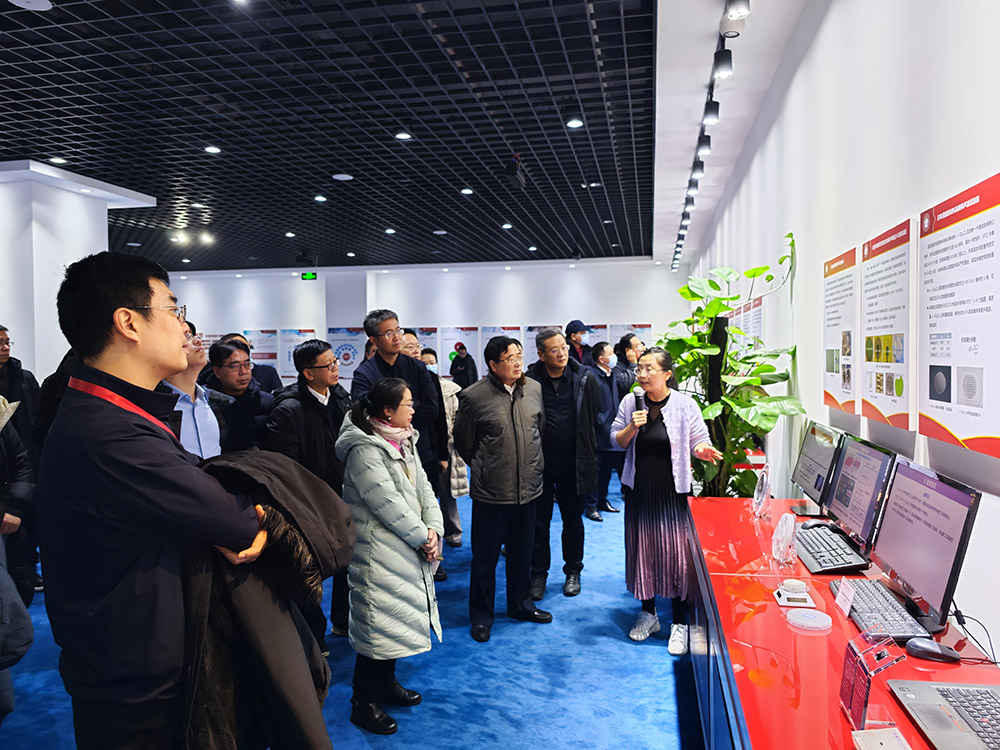
To solve practical problems, the center arranged two themed seminars. Based on the work and study, the trainees proposed several countermeasures to solve the problems and meet the suggestions, and enhanced wonderful fruits.
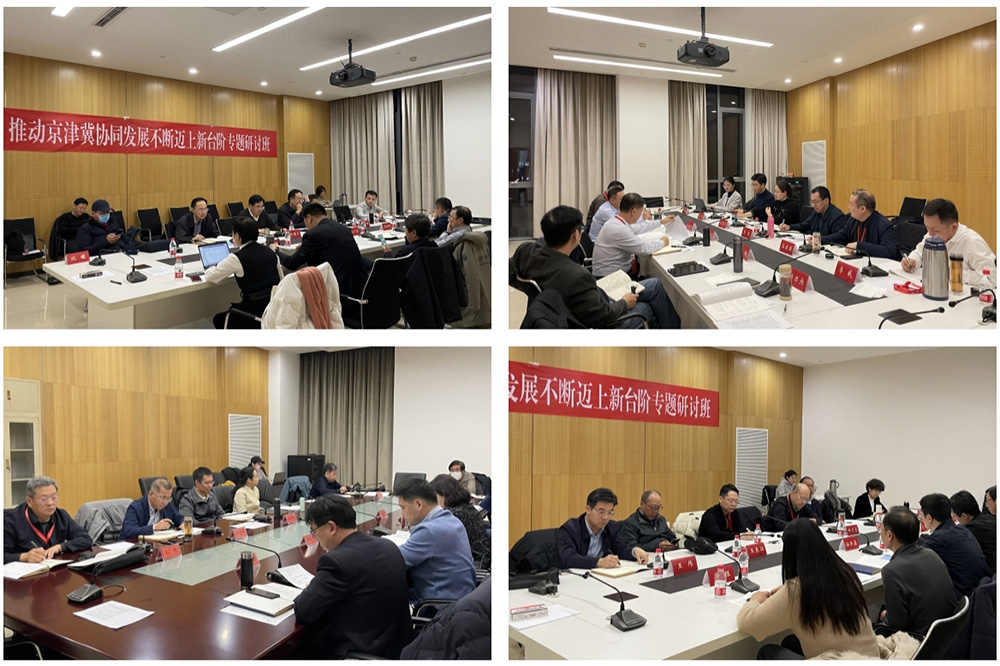
After graduation, Feng Yawei, head of the Comprehensive Transportation Planning and Management Division of Beijing Municipal Commission of Planning and Natural Resources, and First-class Investigator, Huang Shuangquan, member of the Standing Committee of the Party Committee of Wuqing District, Deputy District Director and Director of the District Party Committee Office, and Huang Zhimin, member of the Party Working Committee of Xiong’an New Area and Secretary of Rongcheng County Party Committee, made speeches on behalf of the trainees from Beijing, Tianjin and Hebei. They discussed achievements, ideas, and suggestions for the training.

Representatives make speeches
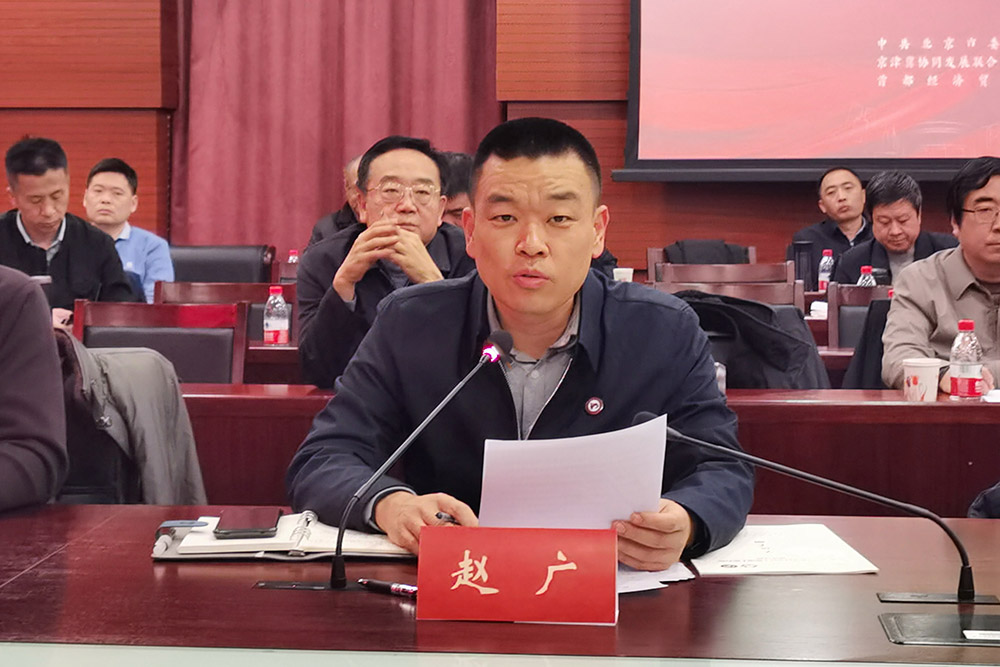
Zhao Guang presides over the graduation ceremony
The Party Committee Organization Department, the Party School, the United Front Work Division, the Teacher Affairs Department of the Party Committee, and other departments took this opportunity to train cadres and teachers. They gathered many cadres to attend some courses, including all the Department-level cadres of CUEB, part of the Party branch secretaries of the teaching staff, students of the Youth Cadre Training Class, and the “Qingma Project” (project for young Marxists), and some non-Party united front personnel.
CUEB is a Beijing Municipal high-level research university focusing on Economics and Management, with law, literature, science, engineering, and other disciplines providing mutual support and coordinated development. CUEB boasts of abundant teaching and scientific resources, as well as outstanding advantages in conducting cadre education and training programs for government agencies, state-owned enterprises, and institutions. Its duty is to introduce high-quality resources to serve the education and training of the cadres, and the key measure to serve the development of the capital in the new era. It can also open new opportunities for the development of the school teachers and cadres. To ensure the smooth progress of the training, Shan Chuanhua, head of the Cadre Education Division of the Beijing Organization Department, and his delegation came to CUEB to investigate the development of cadre education. They explored the cooperation of both parties in the education and training of cadres, especially in specialized ability training. The Party Committee Organization Department, the Party School, the Beijing Municipal Commission of Development and Reform, and the Beijing-Tianjin-Hebei Cooperative Work Office communicated and optimized the curriculum many times. They cooperated closely with relative departments, such as the Institute of Urban Economy and Public Management, the Financial Department, the Security Office, and the Logistics Department, to ensure the training ran well.
